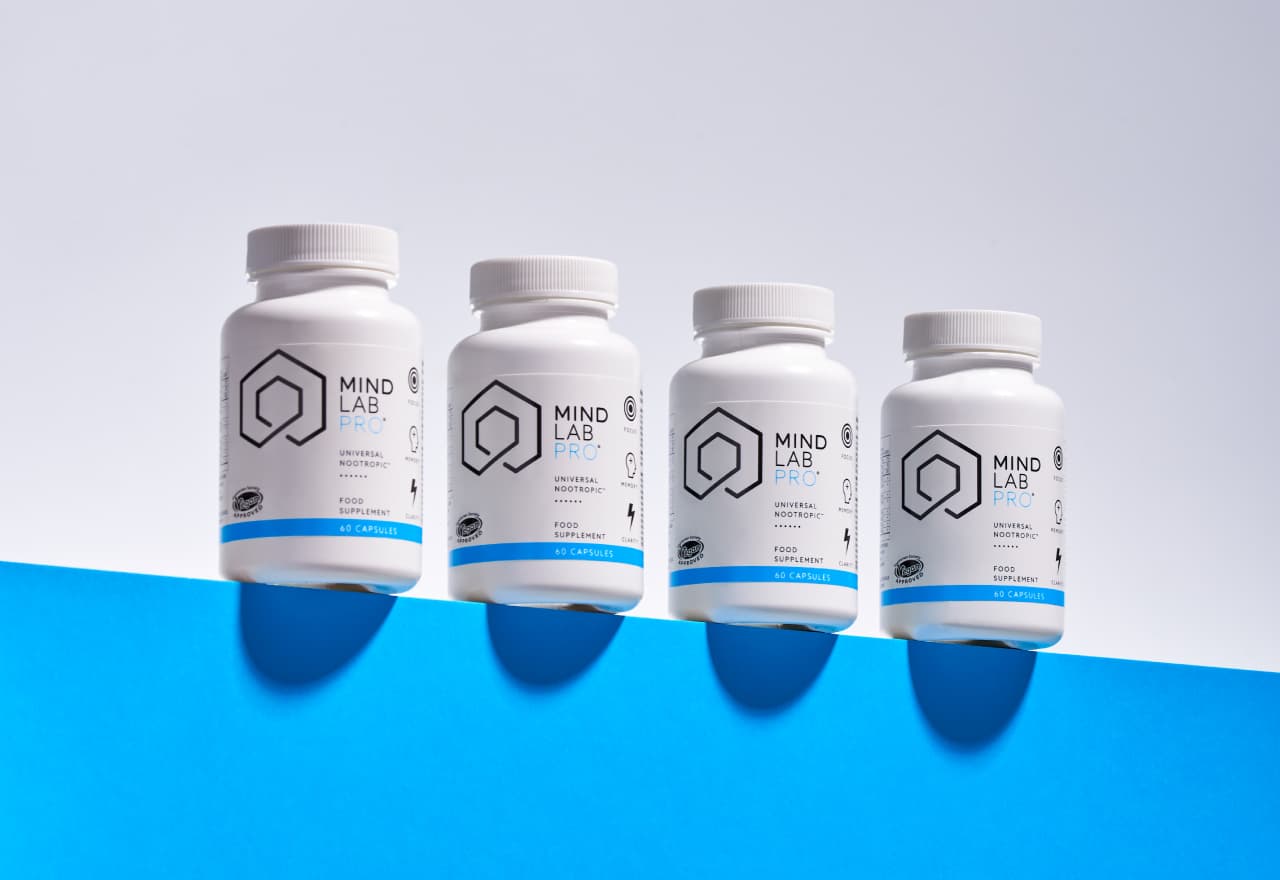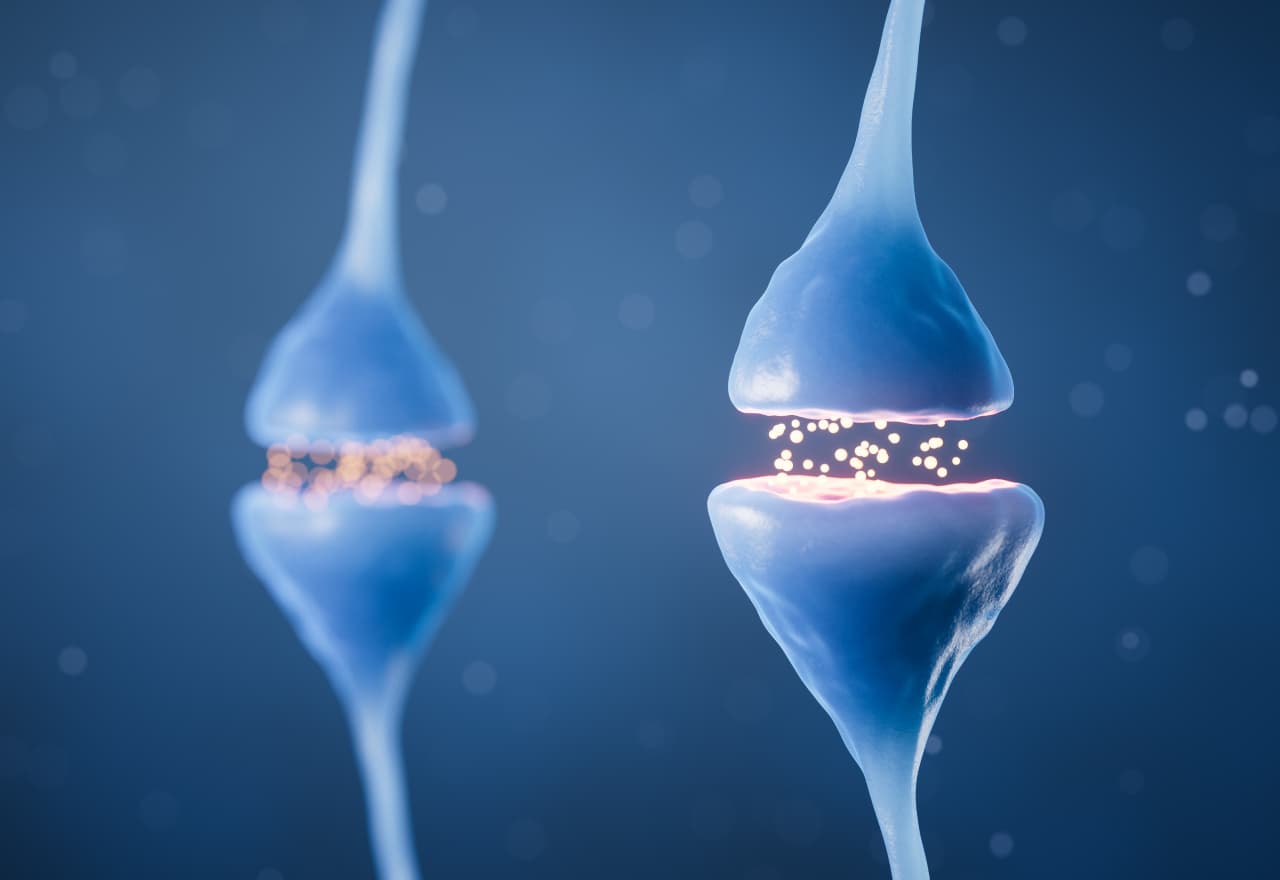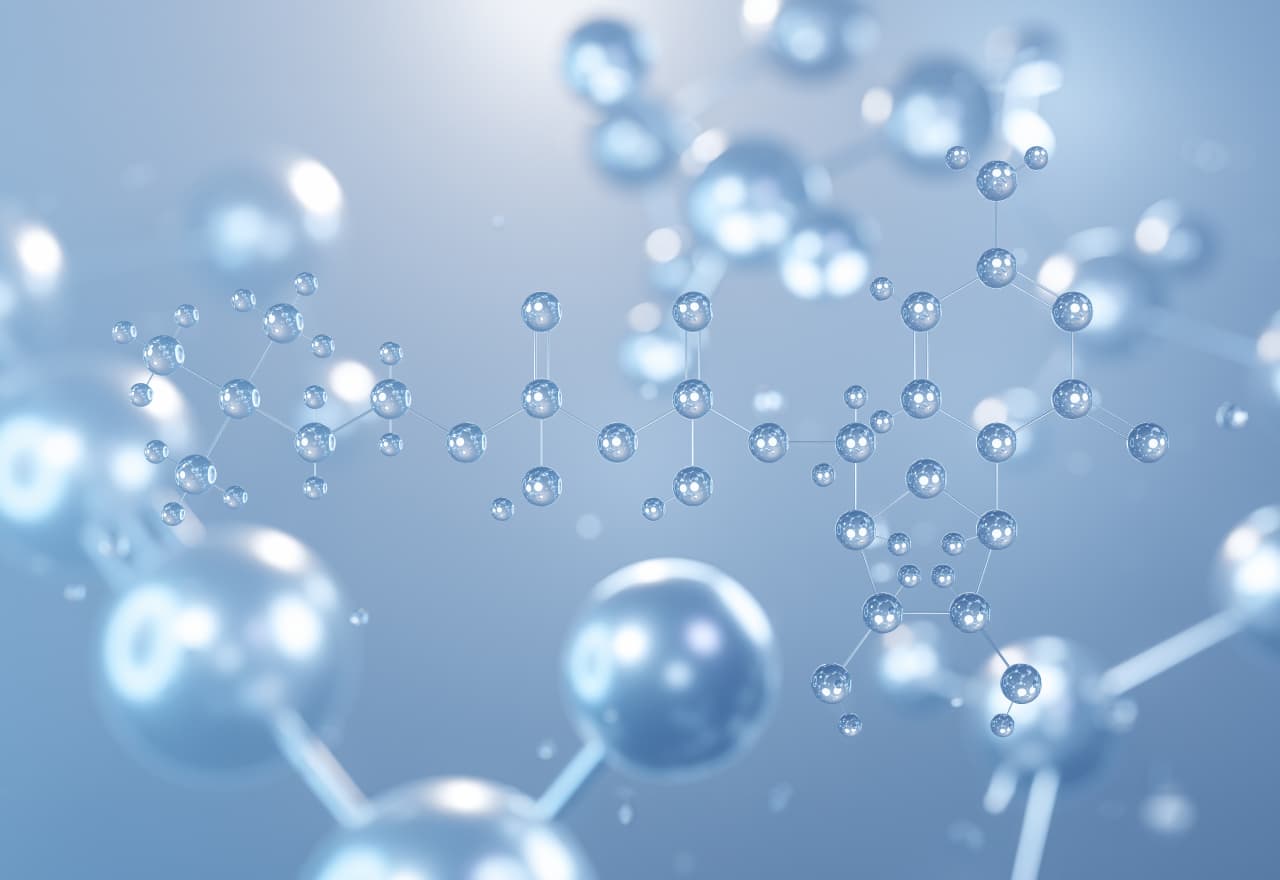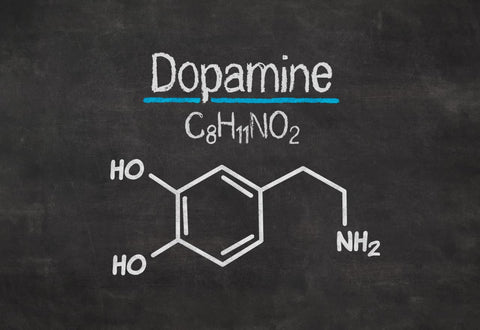Citicoline is one of the best nootropic compounds you can take to support overall brain health and function, including brain chemicals. But does citicoline increase dopamine?
Citicoline does influence dopamine levels indirectly. But that's just one aspect of how it promotes healthy brain chemical levels.
In this article, we're going to delve into what citicoline is and what it does, including its multifaceted role in brain chemical balance. We'll discuss citicoline's versatility and cite some research supporting its brain-healthy bioactivities.
We'll also touch on the best dietary supplement that delivers citicoline: the Universal Nootropic, Mind Lab Pro.
This industry-leading formula also supplies several additional nootropics that help maintain dopamine levels, including N-Acetyl L-Tyrosine and more. Let's get to it!
Quick Summary - Best Nootropic Stack for Dopamine: Mind Lab Pro®

Mind Lab Pro is a leading nootropic supplement that supplies 250 mg of Citicoline in each serving.
It also supplies additional support for dopamine levels and other brain chemicals, including L-Tyrosine, L-Theanine, B-Complex vitamins and more.
We'll delve into this citicoline-driven nootropic stack in more detail at the end of this article.
Get the Best Deal on MLP® Now
What is Dopamine?

You're here to learn about citicoline and dopamine, so let's start by discussing what dopamine is and what it does.
Dopamine is a neurotransmitter: a special chemical in your brain that functions as a cell-to-cell messenger.
It's a bit like a "feel-good" chemical for the brain's reward system that influences emotions, motivation, and pleasure. Here's what dopamine does:
- Mood Regulator: Dopamine helps control your mood. When you do something you enjoy, like eating a delicious meal or achieving a goal, your brain releases dopamine. This makes you feel happy and satisfied.
- Motivation Booster: It's like your brain's way of saying, "Great job! Let's do that again!" Dopamine encourages you to keep doing things that make you feel good. It's what drives you to finish a project, study for an exam, or even exercise.
- Learning and Memory: Dopamine also plays a role in learning and remembering things. When you have a positive experience, dopamine helps your brain remember it. This way, you're more likely to repeat those good experiences.
- Movement Control: In addition to emotions, dopamine is involved in controlling your movements. It helps your muscles work smoothly. When there's not enough dopamine, it can lead to movement problems.
So, in a nutshell, dopamine is like your brain's way of rewarding you and helping you learn from your experiences. It keeps you motivated, controls your mood, and makes you feel good when you accomplish something.
Dopamine is a crucial neurotransmitter for overall wellness and how we interact with the world around us.
So what happens when dopamine levels are low? Prolonged stress, drug and alcohol misuse, poor nutrition, environmental toxins, low physical activity and other factors can diminish dopamine production and release.
There are a broad range of symptoms associated with low dopamine levels, including:
- Apathy: Reduced motivation, low drive
- Decreased pleasure in everyday activities
- Persistent feelings of fatigue or tiredness
- Difficulty concentrating or focusing
- Low libido; loss of desire
- Mood swings and feelings of sadness or depression
- Sleep problems
- Brain fog; slow cognitive processing
*Note: It's crucial to consult with a medical professional if you suspect you have an imbalance in dopamine or any other neurotransmitter.
That being said, there are some nootropics (brain nutrients) that influence brain chemicals and may help to support healthy dopamine levels. Let's discuss them, starting with Citicoline.
What is Citicoline?

Citicoline is also known as cytidine diphosphate choline and CDP choline.
It is a brain-enhancing nutrient -- also known as a nootropic -- that provides the raw materials, energy, and protection your brain needs to function at its best.
CDP choline is notable as a nootropic because it is so versatile, offering powerful multi-tasking brain bioactivities.
Citicoline is suggested to work as a:
- Brain Energizer: Citicoline gives your brain a boost of energy. It increases frontal lobe bioenergetics and helps the brain to utilize energy efficiently. This helps your brain cells fire off electrical signals, which is how they communicate.
- Neuro-Regenerative: Citicoline promotes phospholipid synthesis. This refers to creation of essential "building blocks" needed to build, repair, and maintain your brain cell membranes. Notably, it is a "choline molecule donor," providing materials for making Phosphatidylcholine (PC).
- Neuroprotective effects: Oral supplementation of citicoline helps keeps brain cells well-nourished and in good shape, which may contribute to a significant improvement of overall brain health.
- Cerebral Circulation Optimizer: Citicoline seems to help regulate blood flow in your brain. Healthy blood flow delivers oxygen and neuronutrients that help the brain to function well.
Did you know? Due to its combined brain bioactivities, oral CDP choline has been studied for its potential to help with various brain concerns ranging from cognitive decline to traumatic brain injury.
Citicoline for Brain Chemicals (including Dopamine)
As if the above bioactivities weren't enough, citicoline also plays a role in making important brain chemicals.
It helps acetylcholine synthesis (for memory), norepinephrine (for attention and focus), and dopamine (for alertness and calm thinking). It's like a coordinator that helps these brain chemicals work together.
Here's how oral citicoline intake may influence dopamine, specifically:
Acetylcholine Production: Neurotransmitter acetylcholine helps nerve cells communicate with each other. It plays a role in learning, memory, and muscle contractions, among other functions.
Cholinergic System Activation: Citicoline activates the "cholinergic system" which uses acetylcholine for neuron-to-neuron signaling. It's crucial for performance-driven cognitive function processes.
Dopamine Release: Dopamine and acetylcholine systems are closely intertwined. When you activate the cholinergic system with the help of citicoline, it influences dopamine production and release.
So, while CDP Choline itself doesn't directly produce dopamine, it supports the brain's overall neurotransmitter network, including acetylcholine, which in turn can have an impact on dopamine levels.
Citicoline has demonstrated functional and cognitive status improvements in everything from "petri dish" research to randomized, placebo controlled human trials.
When it comes to dopamine, specifically, researchers have suggested that:
- CDP-choline increases dopamine and noradrenaline levels in the central nervous system (CNS).(1)
- Citicoline appears to stimulate and protect dopaminergic neurons (in culture).(2)
- CDP-Choline increases dopamine synthesis, likely by enhancing activity of the dopamine precursor tyrosine and helping to keep dopamine active for longer periods.(3)
- Citicoline appears to increase the density of dopamine receptors, helping to restore function that is typically diminished by aging (animal research).(4)
In summary, citicoline's role in enhancing brain function includes indirectly influencing dopamine by supporting the cholinergic system.
This interaction can have implications for mood, motivation, and cognitive processes, making citicoline a valuable tool for promoting brain health and potentially improving dopamine-related functions.
Other nootropic compounds that influence dopamine levels
Citicoline isn't the only nootropic you can take to help enhance brain function and increase dopamine. Some other options to consider include:
L-Tyrosine

L-tyrosine is a "master precursor" raw material for making brain chemicals. When you consume L-tyrosine through your diet or supplements, your body converts it into L-DOPA, and then L-DOPA is transformed into dopamine. This conversion process takes place primarily in the brain.
Learn more about L-TyrosineL-Theanine

L-theanine, a natural amino acid found in tea, has the ability to influence dopamine indirectly. This amino acid crosses the blood brain barrier and calms the brain by promoting the release of serotonin and GABA, which can help reduce stress and anxiety and indirectly support dopamine balance.
Learn more about L-TheanineOmega-3 Fatty Acids

Omega-3 fatty acids, particularly eicosapentaenoic acid (EPA) and docosahexaenoic acid (DHA), play a significant role in influencing dopamine function in the brain, mainly by optimizing cell membranes. Clinical trials have suggested that adequate levels of omega-3s can enhance dopamine receptor sensitivity, promoting more efficient neurotransmission and signaling in the brain.
Tip: While Omega-3 fatty acids are often associated with fish oil products, more advanced supplements are now sourcing these healthy fats from clean, vegan, eco-friendly marine algae.
Probiotics and Prebiotics

The gut produces up to 95% of the body's "feel good" brain chemical, serotonin, which is a precursor that is used to make dopamine. In addition to indirectly helping dopamine, some strains of probiotics in the gut can also directly produce small amounts of dopamine and GABA. These neurotransmitters play a role in regulating mood and cognitive performance. Probiotics and Prebiotics both optimize the gut.
Caffeine

Caffeine blocks a neurotransmitter called adenosine, which normally promotes relaxation and sleepiness. By inhibiting adenosine, caffeine increases the release of several neurotransmitters, including dopamine. This rise in dopamine may improve alertness, mood and concentration. But take heed: excessive caffeine may have a negative impact on dopamine levels.
Essential Vitamins and Minerals

Some essential vitamins and minerals play a role in dopamine concentrations, too. They include:
B-complex: Vitamins B6, B12, and folate may help neurotransmitter metabolism too. Most notably the essential nutrient vitamin B6, which regulates mood and cognitive function by synthesizing dopamine, GABA, serotonin, noradrenalin, and histamine. Learn more about Vitamin B6
Magnesium is a cofactor in the enzyme that converts the precursor L-tyrosine into L-DOPA, a critical step in dopamine synthesis. It also regulates calcium, which plays a role in keeping dopamine levels balanced and functioning properly.
Vitamin D may play a role in dopamine regulation by interacting with various enzymes and receptors involved in dopamine synthesis and signaling. Insufficient vitamin D levels have been associated with mood disorders like depression, which are often linked to dopamine imbalances.
Best Citicoline Supplement for Dopamine and More: Mind Lab Pro®
Supplying 250 mg of premium-quality Citicoline per serving, Mind Lab Pro® (MLP®, the Universal Nootropic) is the best nootropic supplement on the market for supporting healthy dopamine levels.
In addition to Citicoline, MLP includes several additional nootropics that help dopamine. Its full ingredient list:
- Citicoline (CDP Choline), 250 mg
- Phosphatidylserine (PS), 100 mg
- Bacopa monnieri, 150 mg (full-spectrum extract, 24% bacosides with 9 bioactives)
- Organic Lion's Mane Mushroom, 500 mg (fruit and mycelium)
- Maritime Pine Bark Extract, 75 mg: (Standardized to 95% proanthocyanidins)
- N-Acetyl L-Tyrosine, 175 mg
- L-Theanine, 100 mg
- Rhodiola rosea, 50 mg (Standardized to 3% rosavins and 1% salidrosides)
- NutriGenesis® B-Vitamins: Vitamin B6 (2.5 mg), Vitamin B9 (100 mcg), Vitamin B12 (7.5 mcg)
Supplying citicoline and L-Tyrosine together with L-Theanine and B-vitamins, Mind Lab Pro delivers comprehensive brain chemical support, including for dopamine.
Due in part to its pro-dopamine benefits, Mind Lab Pro is the best nootropic for improving mood, concentration, focus, and attention, with minimal side effects.
MLP also optimizes far more brain pathways than just brain chemicals.
It also helps with brain energy production, blood flow to the brain, neuroprotection and brain health, brain waves, membranes of brain cells, and other key areas associated with overall brain wellness.
Functioning as a whole-brain optimizer, MLP can help to promote sharp cognitive function in many ways:
- Attention, concentration, focus and peak productivity
- Mental energy without caffeine; revitalizes brain cells naturally with no crashes
- Maximum mental performance under multitasking, stress, and chaos
- Helps enhance memory: short-range (working memory), learning, verbal memory
- Promotes mental clarity and cognitive ability while multitasking
- Supports mood balance, calm and relaxation
- Nourishes for long-range healthy brain function and cognitive function
With the long list of benefits including help for mood, motivation, balance and drive, you can see how MLP's dopamine support plays a significant role in this formula's overall support for multiple cognitive functions.
Because it is the world's first Universal Nootropic™, Mind Lab Pro® is uniquely capable of improving all types of thinking in all types of people -- especially dynamic and performance-driven individuals.
Quality is a big part of the MLP® philosophy.
At its core, an outstanding nootropic supplement should be safe, healthful, and potent.
MLP® stands out in terms of quality, setting high benchmarks in ingredient procurement, manufacturing processes, formulation, and customer support, delivering exceptional value for its price point.
It's clean, vegan, free of unnecessary additives, and delivered in premium vegan NutriCaps®.
Learn More about Mind Lab Pro® QualityMind Lab Pro® is Backed by Research.
MLP® is backed by human studies showing it may improve brain function. According to the clinical trials:
- Study 1: Researchers reported those taking MLP demonstrated significant improvements (compared to placebo) in information processing tasks.(5)
- Study 2: People taking MLP significantly improved memory functions, including auditory, visual, visual working memory, immediate and delayed recall memory.(6)
Mind Lab Pro® Pricing & Shipping
- 1 Bottle (one month supply): $69 ($2.30/serving)
- 2 bottles (two month supply): $138 ($2.30/serving)
- Best deal: 3 bottles + 1 free, with free shipping: $207 ($1.73/serving)
- All covered by 30-day money back guarantee
Buy Performance Lab® MLP® Now
Additional dietary supplement options for dopamine
If you are looking for other dopamine-supportive nutrients discussed in this article, here is a list of high-quality supplements that supply them.
- Performance Lab® Mind: Top pick for productivity; supplies citicoline and L-tyrosine plus maritime pine bark extract and phsophatidylserine. This formula is good for dopamine, peak cognitive performance, brain health and mental recovery. Great for working professionals.
- Performance Lab® Omega-3: Advanced plant-based Omega-3 fatty acids (DHA+EPA) nootropic. All of the brain health and cognition benefits Omega-3s, but in an ultraclean algae-sourced form. No fishy taste, gastric distress, or negative environmental impact like with fish oil.
- Performance Lab® Prebiotic: A great way to boost your microbiome and optimize it for serotonin (and dopamine) support. Clean prebiotic fiber in vegan capsules that feeds gut probiotics associated with improvements in depression, anxiety and overall mood.
- Caffeine+: The top caffeine pill overall, especially for dopamine. Moderate-dose caffeine enhanced with dopamine-supportive L-Theanine and B-Vitamins. Designed for clean mental and physical energy without crashes, jitters or other side effects.
- NutriGenesis® Multi for Men and for Women: A top-quality multivitamin that supplies essential nutrients for dopamine support, general neurotransmitter health, and overall wellness. Features patented fermented vitamins and minerals that are easy to absorb and eco-friendly.
Conclusion
If you're dopamine levels aren't quite where they should be, you can really feel it in your day-to-day life. Nootropics like CDP choline (citicoline) may help.
The various benefits of Citicoline seem to work together in harmony. It's like a symphony of actions that enhances the structure and function of your brain.
And what's even more exciting is that research suggests Citicoline can help with mental performance, improving attention, focus, and mental energy.
Nutritional supplementation that supports healthy dopamine levels can be an early therapy in mild cases of dopamine imbalance. Citicoline is one nootropic nutrient that can help, but a complex of dopamine-supportive compounds may be even more effective.
Combined with the other dopamine-supportive nootropics discussed in this article, CDP choline may help to support the bright mood, motivation and drive that can help you to be your best.
References:
- Secades JJ, Frontera G. CDP-choline: pharmacological and clinical review. Methods Find Exp Clin Pharmacol. 1995 Oct;17 Suppl B:1-54. PMID: 8709678.
- Radad K, Gille G, Xiaojing J, Durany N, Rausch WD. CDP-choline reduces dopaminergic cell loss induced by MPP(+) and glutamate in primary mesencephalic cell culture. Int J Neurosci. 2007 Jul;117(7):985-98. doi: 10.1080/10623320600934341. PMID: 17613109.
- Saver JL. Citicoline: update on a promising and widely available agent for neuroprotection and neurorepair. Rev Neurol Dis. 2008 Fall;5(4):167-77. PMID: 19122569.
- Giménez R, Raïch J, Aguilar J. Changes in Brain Striatum Dopamine and Acetylcholine Receptors Induced by Chronic CDP-Choline Treatment of Aging Mice. British Journal of Pharmacology, Vol. 104, No. 3, 1991, pp. 575-578.
- Utley A, Gonzalez Y, Imboden CA. The Efficacy of A Nootropic Supplement on Information Processing in Adults: A Double Blind, Placebo Controlled Study. Biomed J Sci & Tech Res 49(1)-2023. BJSTR. MS.ID.007746
- Abbott-Imboden C., Gonzalez Y., Utley A. (2023). Efficacy of the nootropic supplement Mind Lab Pro on memory in adults: Double blind, placebo-controlled study. Human Psychopharmacology: Clinical and Experimental, e2872. https://doi.org/10.1002/hup.2872
